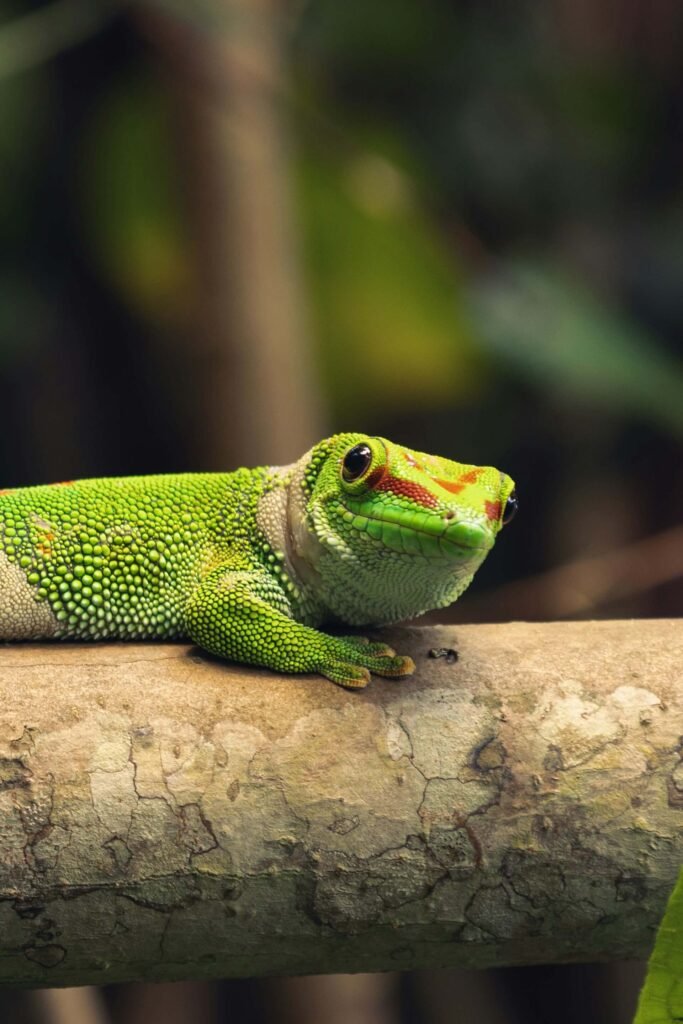Can Crested Geckos Eat Mealworms? What You Need to Know?

Understanding the Crested Gecko Diet Most owners give them specially made powdered food that’s balanced for their needs. Just adding water usually does the trick! Still, many also toss in some live insects like crickets or dubia roaches, & sometimes mealworms too.They pack a punch in protein, which is super important for animal growth and health. Here’s a quick look at what mealworms offer: Protein:** Got about 20-25% protein — so that’s a decent source. Fat:** Pretty high in fat too—about 12-15%. This can help or hurt depending on the animal’s needs.Yup! But you should be careful & only give them occasionally. They make a nice treat but shouldn’t be the main part of their meals. Here’s why: High Fat Content:** Sure, they’re good for protein but too much fat isn’t great either. A gecko eating too many might get overweight or even have liver problems. So keep those mealworms in check! Low Calcium-to-Phosphorus Ratio:** This is pretty crucial—mealworms don’t provide enough calcium compared to phosphorus. There’s another thing—mealworms have tough exoskeletons that might not be easy for younger or smaller geckos to chew. Sometimes this can cause blockages in their tummy if they can’t digest them well. To be safe, cut ’em up small if needed. Digestive Issues Some crested geckos might not handle mealworms great because of those hard shells. If your gecko seems uncomfortable after munching on mealworms or struggles with poop, it’s smart to skip these insects altogether. Best Practices for Feeding Mealworms to Crested Geckos If you decide on offering mealworms now & then, here are some tips to keep your pet safe:
1. **Feed in Moderation:** Make those mealworm treats rare—aim for once or maybe twice a week max! A couple at a time is plenty alongside their main diet. 2. **Gut-Load & Dust with Calcium:** Before feeding ‘em up, gut-load your mealworms by giving them healthy food for a day or two first. This boosts nutrition! Plus, always dust those little guys with calcium that has vitamin D3—helps balance their nutrition right. 3. **Use Proper Sizing:** Use appropriately sized mealworms for your gecko—nothing longer than the space between their eyes! For smaller ones or babies, smaller worms are a safer bet. 4. **Monitor Your Gecko:** Keep an eye on ‘em after feeding! Look out for signs like sleepy behavior or trouble going potty after eating these worms and talk with a vet if you see anything worrying. 5. **Provide a Varied Diet:** A happy crested gecko loves variety! In addition to commercial food, throw some crickets or dubia roaches at ‘em now & then! Fruits like mashed bananas are also fun treats that mimic what they’d naturally eat! Alternatives to Mealworms Worried about all those risks? No sweat! There Are other insect options you can try: 1. **Crickets:** These guys have great protein levels and lower fat content—plus they’re easier on digestion! 2. **Dubia Roaches:** Good choice with better calcium ratios; they’re nutritious and soft-bodied too! 3. **Silkworms:** Amazing feeders packed with protein but low in fat—easy to digest as well! 4. **Phoenix Worms (Black Soldier Fly Larvae):** High in calcium; soft-bodied worms that your gecko can munch easily — definitely worth considering!While mealworms can work as an occasional snack for your crested gecko, remember: moderation is key! High fat content and low calcium levels mean they shouldn’t take over your pet’s diet really anyway! Stick with best practices like gut-loading & regular checks on health along with plenty of variety in meals—all this will help make sure your little buddy stays healthy and happy too! Always focus on what’s best for their nutrition and consult an expert vet if anything feels off about their diet!
1 thought on “Can Crested Geckos Eat Mealworms?”